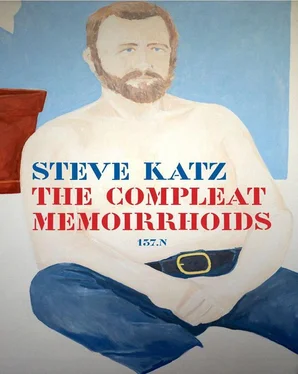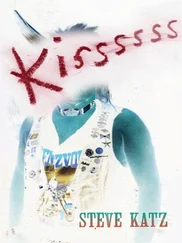When I studied at Cornell I spent a lot of time waiting tables at The Statler so I could afford the Ivy League, and send some money home to mother. I was friends, occasionally had a beer with a big man who was from that neighborhood, a heavyweight boxer named Arthur Jones, powerful enough to rise in the profession, but too congenial and affable to get mean and hurt someone. He washed pots in the kitchen where I waited tables, but was gone by the time I came back to move into the neighborhood. I’d heard that most of the population came from one town in the Mississippi delta. They lived like one big poor family. Porch sitting was our favorite daytime sport. On our porch Lee Friedlander took the picture we used on the back jacket of Creamy and Delicious. I ride a rocking chair, totally decelerating on that porch. Across the street at the laundromat sat the best soul, R&B jukebox in the whole Finger Lakes region, a total James Brown, Solomon Burke, Aretha Franklin, Bo Diddley, Otis Redding, Marvin Gay, Chuck Berry, Percy Sledge, Gladys Knight, Motown alert system. It even tolerated some Mitch Ryder and the Detroit Wheels. Often parties broke out from there, spontaneous as a rogue spin cycle. Those were the times of party and protest. Civil rights joyous and violent. Demonstrations against the filthy brutal Vietnam war made many people dance. St. James A.M.E. Zion Church, said to be the oldest church in Ithaca, was around the corner on Cleveland Avenue, the shortest street in Ithaca. It secretly drew fabulous gospel groups from all over the US before they were well known — The Blind Boys of Alabama, The Soul Stirrers, Marion Williams. I was too shy to risk being the only white guy in the African Methodist Episcopal church, where I’m sure I would have been welcomed, maybe even saved. But we sat on the porch often and long, and we rocked and shmoozed. We eyed with suspicion any white person who walked by on the way to the supermarket across Clinton Street.
My kids’ friends all were from the neighborhood. In the summer we took Lisa and Vanessa, beautiful dark slim girls of eight and ten, to swim with us at Buttermilk Falls State Park. They weren’t comfortable, Jingle thinks because their families rarely did anything like that, but also because they were the only black kids at the swimming hole. This park was another place where you would occasionally see Nabokov flitting across the greensward and into the woods with his butterfly net, a taxonomist on a mission. The novelist/lepidopterist amazed the girls. Eddie Cleaver hung out at our house a lot. He was close to Avrum. People called him ‘Goo because his thick glasses made him look like Mr. Magoo of cartoon fame. Sometimes when a lot of the kids came over they enjoyed lining up, as you might line up in size places, according to color of skin — Avrum at one end as the lightest, and the next lightest, ‘Goo in the middle, and so on until ebony. Rafael remembers at his friends’ houses being obliged to chant with them “A Fight! A Fight! A Fight! / A nigger and a white / Whitey’s got a gun / Nigger’s gotta run. It bothered him, even at kindergarten age, that he belonged to the group called Whitey, the ones at the time with the guns. Occasionally they had a dance contest at someone’s house. Avrum was a good dancer, and liked to compete. Once he actually won. He thinks they were being kind to him as the only white boy present; nonetheless, he won.
On the day of April 4, 1968, the assassination of Martin Luther King sent people tumbling off their porches out of their homes, wandering into the streets. The feeling of being cut from our moorings and left to drift was too familiar, too many assassinations in the land of the free. Anarchy and chaos like waves of acid fog blinded everyone. Everyone wanted to do something. Nobody knew what to do. Screams of grief and fury. The windows of the supermarket smashed. The laundromat jukebox landed in the street. It all happened as if by itself in the anarchic winds. People wandered around hugging each other and weeping, pounding their chests, ripping at their hair. We felt suddenly so white, afraid to go outside.
A knock on our door froze us. Shhhhhh! We didn’t answer. At least no one yet had busted the door down. The knock persisted. Finally one of the kids looked onto the porch. “It’s ‘Goo,” he said, and opened the door. The kid flew in.
“Aver. Aver.” He’d never learned to pronounce Avrum’s name. “Come on. Come on. We’re gonna kill all the white people.” He paused, and looked around at us.
“No. No. No. Not you. The white people. Hurry up, Aver.” Avrum went to find his sneakers. By the time he got them on, ‘Goo was gone. Avrum didn’t go into the street to look for him. His decision. A wise white choice.
“A fight! A fight! A fight! …”
wait start over wait wrong from the beginning please
Remington 760 Gamemaster chambered in 30–06
7 power nightforce scope
“there ought to be a law against Henry”
shatterfist falls whitey yo dead shot
Martin sent back to the mountain he’s been to
wind time back please
south corn no more for me no mild
empty heaven bindhinge bend gate shut
Please! Puhlease!
busful of faith
America! Fuck! America! Me!
whitey gotta race is the matter that matters when it matters
“against Henry”
ce freak of grace no freak of grace freak of grace
no freak of grace freak of grace no
the hat I put on doff the hat is never the hat I wear
The advantage at Stuyvesant High School of calling yourself a writer was that you could work on the student magazine and skip English class. I loved to skip, skip out to Ptomaine Joe’s for a salami sandwich, or skip to 14th St. Billiards where the rumor always was that Willy Hoppe would show up. Skip English class, anything; so I worked on the magazine and wrote a few poems, but I didn’t get yet what it meant to be an artist. I put most of my creative energy into wood shop, in a large dusty room of ancient flywheels, pulleys, heavy belts, all of which began to turn when Mr. Cooperstein threw the switch to start the lathes. The room smelled of lubricating oils and wood dust. The windows were dark with soot, letting in a smudge of greasy light. It was deliciously mechanical, and felt dangerous. Gears clanked, wheels screeched, moving belts slid sideways on their pulleys. I thought the room must be a metaphor for something — the government, the city, the brain. It wasn’t just a woodshop. Eventually I’d figure it out and make a poem. I started to build a coffee table, an oval, with a routed edge, out of beautifully grained pale Korina, a tropical wood. I never finished it completely, but loved turning the legs on a lathe, the chisels sharpened so I could shave translucent curls off the shape. My energy also went into jobs after school. For one I delivered yard goods and samples all over lower Manhattan for two young brothers with a wholesale business on Union Square. They treated me well. I felt a connection, a bond with the city as I was beginning to see myself more as a writer. The more passionate I became about the city, the more I was a writer. I entered factory buildings through the freight elevators, and dealt with receptionists and shop foremen, ran gauntlets of older workers, fat and boozy and tattooed — bookies, touts, queers, flim-flam. I narrowly avoided disaster in traffic on Broadway when my cart, full of heavy bolts of worsted, got stuck in the cobbles. Fellow workers came to the rescue.
I loved taking the number 5 bus downtown to the Met or the Modern, which were free at the time, and I’d malinger in front of Hieronymous Bosch or some gloomy Rembrandt, or I’d go to the Modern and gaze into the clear space of Rousseau’s Sleeping Gypsy , or Mondrian’s Broadway Boogie Woogie . Or Picasso’s Demoiselles D’Avignon , and the Guernica , or I’d go to the Frick to indulge in the lucidity of those Vermeers. I didn’t know what I was doing, though I kept doing it. For one thing I thought I was escaping from my neighborhood into a better world. Though not as bad or heavily armed as some ‘hoods are today, the streets still seemed full of ignorance, and especially for a teenage kid could blow into violence at any turn. And I was getting away from my house and my mother who could ensnare me in meaningless chores.
Читать дальше












